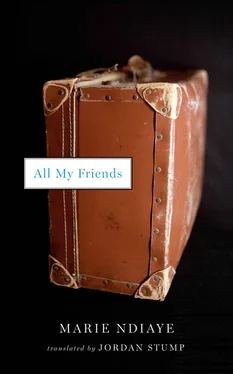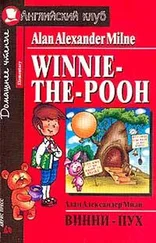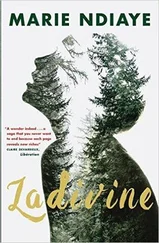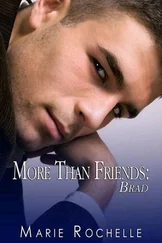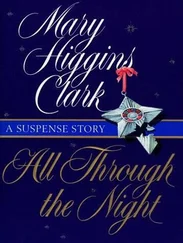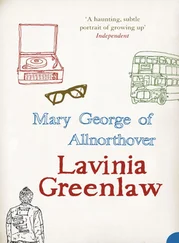Brulard had a secret soft spot in her heart for the blonde, hungry Brulard, even if that one had misjudged the best way to go about succeeding, even though she’d given far too much of herself for very middling results. Brulard even felt a certain disdain for the simple, natural woman she seemed so quickly to have become, the very one who, to punish herself for racing toward a shining new future, now almost in sight, had snatched up the first pair of loafers she laid eyes on. She knew that no such need for self-mortification would ever have entered the mind of the ravishing Brulard of old, and certainly not for a reason like this, for behaving in a way that might bring something remarkable into her life, even if it came at the expense of great sorrow.
But, for the moment, how tired she was.
Day had now fully broken, giving the lake that cobalt blue tint that had intimidated Brulard when she first stepped off the train, a perfectly and literally honest blue that she had immediately seen as the emblem of this entire adventure. May what I’m now making my way toward, she’d said to herself, be just as. .
How tired she was.
Eyes half-closed, she gave a start. A warm, dry snout had brushed against her limply hanging hand. An ugly little dog with a drab coat was clasping a crumpled piece of paper between its teeth. Brulard smiled. It was the homeliest, most pathetic-looking dog she’d ever seen. She reached out to give it a cautious caress. The dog licked her fingers, the paper fell to the ground, and Brulard, having first pretended not to notice, quickly picked it up, faintly stunned. It was just what she thought she’d seen in that dog’s mouth — the word Hassler . She felt herself blushing stupidly. A jogger came into view, and Brulard, assuming he was the dog’s owner, gently pushed the animal his way with the tip of her shoe. The athlete sped past at a panting little trot in his luxurious white and gold outfit, never glancing toward the bench. Puffs of flatulence drifted along in his wake.
Brulard buried her head in her hands. She’d read that word Hassler on the paper — could it be? Was this a portent of good things to come? Or a questionable gift from the mountain that Brulard could no longer pretend not to see, now that the new day was extracting it from the fog, at once behind Brulard’s back and in front of her, almost up to the opposite shore — still snow-covered in its upper reaches, now unable to hide its likeness, in physiognomy and expression, to Brulard’s late mother, or rather old mother Brulard, as she was called in her village, off in the province of Berry, like a failed avatar or a ridiculous disguise? It was her, Brulard’s mother, impossible to catch in the act, watching and mutely disapproving of Brulard for the rest of time. Here a mountain, there a footpath or a hill — everywhere, in fact.
Who cares? Brulard asked herself.
Had she fallen asleep? A large cold sun was flooding her bench. A well-to-do crowd strolled along the promenade, lined leather boots, pastel down coats, a whole childish winter-sport elegance that demoralized Brulard, who, in her black clothes, seemed some sort of evil fairy alighted here to darken the children’s festivities. Had she fallen asleep? It was almost eleven. She’d missed the opening of the bank, and now she’d have to hurry to be there before noon. She stood up, then gingerly sat down again, shaken.
Had she been recognized?
Her head was spinning with impatience and apprehension. Who here knew of her private affinity with the mountain? A smile crossed her lips as she imagined the stunned dismay on these faces, so blessed by sunshine and money, if she told them just who that mountain was (and what vulgarity would they not immediately find in the presence of an “old mother Brulard” deep inside their costly mountain), and yet, thought Brulard, there was one thing she didn’t know: whether, for each of these vacationers, a mother Brulard of their own, named by each in their own secret way, might have adopted that mountain’s form and appearance, spying, judging, thinking herself alone, and every one of them, like Brulard, thinking her alone and unique.
* * *
It was nearing noon when Brulard returned to her hotel. Disappointment had granted her a glorious, go-for-broke daring. She took out her checkbook and, smiling boldly and broadly with all her hard-won technique, regretting as she strode toward the desk that she’d lacked this foolhardy courage a little while before, and hadn’t bought that much-needed coat on leaving the bank, she rested her elbows on the counter directly in front of the clerk. Thrusting forward her cold, shining, pinkened face, she exclaimed:
“Hello! I’d like to pay for the three days I’ve been here.”
All the while thinking to herself, trembling, oddly excited: the check’s going to bounce.
She slid the paper she’d taken from the dog — a pale yellow sheet, smoothed out by her own hand — toward the unsmiling clerk.
“They’re showing a film I act in at the Rio. . This one here. . The Death of Claire Hassler .”
Her smile widened still further, her jaw aching vaguely. How vicious must the shock of a letdown be to send you tumbling from hope into despair? She could feel herself teetering, and that unsteadiness energized her, cleansed her of her weakness.
“This one here, see?. . That’s right, I’m in it.”
“Oh, that. I’ve seen it,” said the employee.
He examined Brulard’s check more closely than was polite. He was a young blond man, pale and cold, who, from the first day, Brulard thought, treated her as if awaiting the moment when he would at long last see through her, patient, sure it would come.
“Did you like it?” asked Brulard, slightly breathless.
The young man wouldn’t look her in the eye. He let a few seconds go by, with Brulard’s face, glowing in artificial eagerness, a little too close to his, and then he let it drop:
“I don’t know. I wouldn’t have thought it was you.”
“Who?”
“The woman whose brain gets. . tinkered with,” he said delicately. “In the movie. I don’t recognize you.”
“That’s not me,” Brulard warmly cried out, suddenly so eager to win a little consideration from this boy that she shook her head and gave a chummy little laugh. “I play the other one, the heroine’s sister. You know, the one who’s so merry and bold.”
But he had no memory of that character, apart, he observed to Brulard in an irritable voice, from a yellow scarf that came loose and got stuck in a car door.
“Yes, that’s right,” Brulard murmured.
And then, considering the subject closed, the young man turned away. Speechless, wondering in a fierce fit of panic how on earth she could fill up the rest of her day, Brulard pulled her tremulous, weary face back toward herself, wistfully withdrawing it from the cold sphere created all around the young man by his indifference, his distant indolence. She reflexively touched her cheeks, her forehead — and so, without meaning to, evidently summoned up the meddlesome young Eve Brulard, who abruptly took the employee’s place behind the counter, making conventional obscene gestures at Brulard, still half clad in her translucent pink dress, now rumpled and torn. Never before had Brulard seen her show the least sign of spite, or at least of sarcasm and vulgarity. Afraid, she thrust out her fingers, and the girl disappeared with an overdone snort of derision. The boy had turned around again — had Brulard’s fingers unwittingly touched him, as if to give him a teasing little slap, a flirtatious flick? She thought they very possibly had, though she couldn’t be certain. She turned beet red, blurted out:
“Excuse me!”
He shot her a brief glance, conscientiously drained of all expression, but should she go on believing that no one but her could make out the hideous screeches of that half-naked girl in the chiffon dress? That girl who, no doubt — but Brulard had absolutely no desire to make sure, convinced that Eve was only waiting for her to look up to start shrieking again — was now flitting this way and that around the big crystal chandelier? Brulard herself could so clearly hear the pink fabric rustling overhead, and the mocking little sounds the girl’s mouth made for her benefit, but how was she to know? Suppose that girl was deliberately provoking the young clerk, so that she, Brulard. .
Читать дальше
